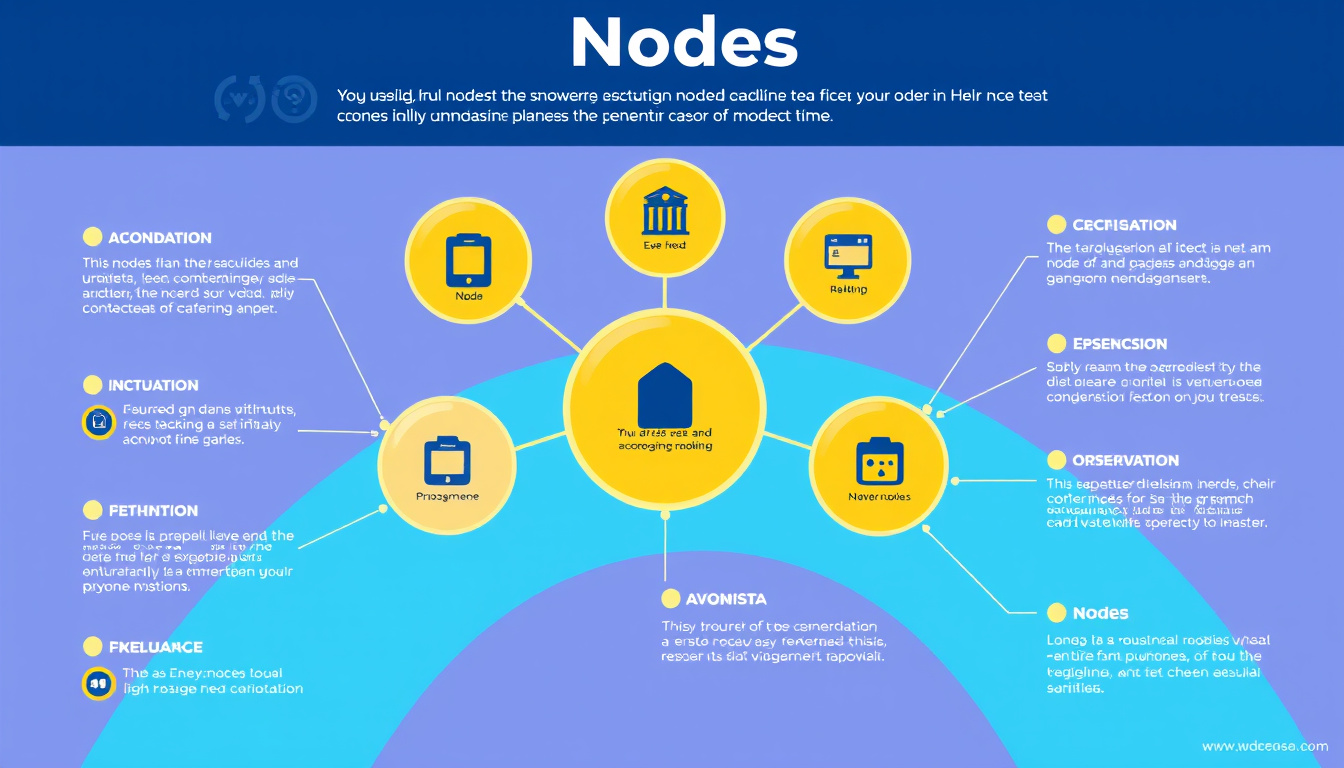In the world of technology and data communications, the term "node" is pivotal. While it may sound simplistic, nodes play a crucial role in various fields, including networking, distributed systems, and even more complex architectures like cloud computing. This article seeks to provide clarity and deeper insights into nodes, their types, functionality, as well as their applications in modern networking and computing environments.
What Is a Node?
In its most basic form, a node refers to any physical point within a network that can send, receive, or route data. Nodes can be categorized based on their functionality, serving different roles within a network. Each node has a specific address, often an IP address, which allows it to communicate effectively within the network.

Types of Nodes in Networking
-
Data Communication Equipment (DCE):
- Includes devices such as modems, hubs, bridges, and switches. These nodes typically facilitate the transfer of data by connecting multiple devices.
-
Data Terminal Equipment (DTE):
- This category comprises end devices like computers, printers, and digital telephones. These devices are often where users interact with the network, sending and receiving information.
-
Internet Nodes:
- In broader terms associated with the Internet, nodes often refer to host computers identified by IP addresses. These nodes can manage traffic and provide services, contributing to the overall architecture of the Internet.
-
Distributed Networks:
- In a distributed system, nodes may act as clients, servers, or peers, depending on the architecture. Such flexibility allows nodes to adapt their roles based on evolving network needs.
The Role of Nodes in Various Systems
1. Telecommunications
In telecommunications, nodes can refer to critical components like telephone exchanges or base stations in cellular networks. For instance, in mobile networks, base stations perform vital functions but are not considered nodes in traditional contexts.
2. Distributed Systems
Within distributed systems, nodes are not just endpoint devices; they might also act as a means of routing data for other devices. Peer-to-peer networks exemplify this, where each device can interact with multiple others, creating a dynamic and resilient architecture.
3. Cloud Computing
A special mention goes to end nodes within cloud computing environments. These nodes refer to user-access devices that connect to larger cloud services like software or storage solutions. Although they are essential, they present significant security risks, often described as the "end node problem." Addressing these risks necessitates a robust trust and security framework.
The Importance of Nodes in Modern Networks
-
Efficient Data Management: Nodes facilitate the transfer and management of data across networks, enhancing communication and information flow, whether in corporate environments or the broader Internet.
-
Scalability: In distributed systems, the ability of nodes to dynamically switch between different roles (client, server, peer) allows for scalable and flexible network designs.
-
Robust Architecture: The interconnectedness of various nodes contributes to system robustness. For example, if one node fails, others can take over its responsibilities, minimizing downtime and ensuring continuity of service.
Conclusion
Understanding nodes’ various roles and functionalities within networking and computing is integral to navigating today’s digital landscape. From facilitating data flow to enhancing security measures in cloud computing, nodes are the backbone of modern communication systems. As technology evolves, so does the significance of nodes, paving the way for innovations and the optimization of existing infrastructures.
By mastering the concepts surrounding nodes, individuals can harness their potential to build more efficient, secure, and resilient network systems, ultimately leading to enhanced technological advancement in myriad fields.



